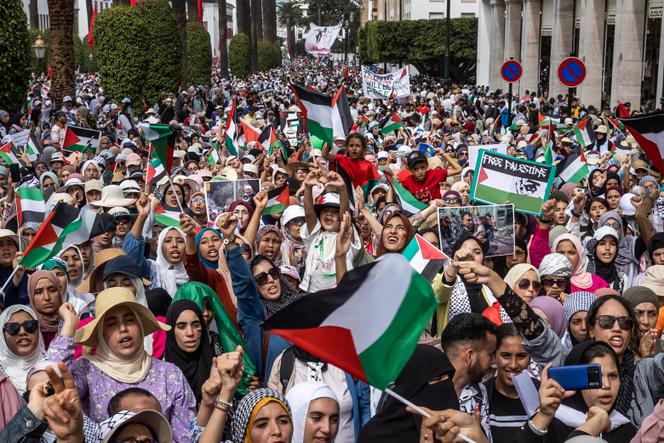


Since the Israeli army began its siege of Gaza in retaliation to the October 7 Hamas attack, the question of continued cooperation with Israel has been raised in Morocco. There is considerable public pressure against this cooperation. Rallies are held every week in the country's main cities. The protest movement is supported by numerous political parties, unions and associations, which are demanding an end to relations with Israel.
In Morocco, neither civil society nor the political parties serve as an echo chamber for the "pragmatic" diplomacy often described by the kingdom. But not a week goes by without the Moroccan government condemning Benjamin Netanyahu's government, whether through the voice of the king, his diplomatic corps, or the institutions in which Morocco is represented, notably the Arab League and the Organization of Islamic Cooperation.
This position was reiterated on Wednesday, December 20, at the sixth Russia-Arab World Cooperation Forum in Marrakech. The joint declaration was unequivocal: It condemns "the war of aggression against the Palestinian people in the Gaza Strip," and rejects "any justification for this war, including calling it self-defense."
The situation is such that the third anniversary of Donald Trump's so-called "Deal of the Century" went unnoticed. Unlike previous years, the December 22, 2020 agreement, which marked the official resumption of relations between Rabat and Tel Aviv, as well as the recognition by the United States of Morocco's sovereignty over the Western Sahara, was not celebrated. Yet it remains one of the major achievements of Moroccan diplomacy since Mohammed VI came to power in 1999.
The new tone in the relations between the two countries is reflected in the meetings between senior Moroccan and Israeli officials. These meetings, which were widely publicized in the media a few months ago, have now either ceased or they are no longer disclosed. Netanyahu, who was due to visit the kingdom by the end of the year, is not coming, and Morocco is likely to continue, as it has done for nearly a year, to postpone indefinitely the organization of the next Negev Forum, a platform that brings together countries that have normalized their relations with Israel.
Morocco's caution in playing its part alongside Israel is nothing new. Marc Ginsberg, former US ambassador to Morocco (1994-1999), recalls that very few Moroccan politicians and senior officials were in favor of the Oslo Accords and the opening up of the kingdom to Israel – the two countries established official relations between 1994 and 2000, before the second Intifada halted the momentum. "King Hassan II's enthusiasm was not at all shared, and his adviser André Azoulay was very isolated," he recalled. A generation has passed, but the malaise is still real for part of the Moroccan ruling class.
You have 75% of this article left to read. The rest is for subscribers only.
